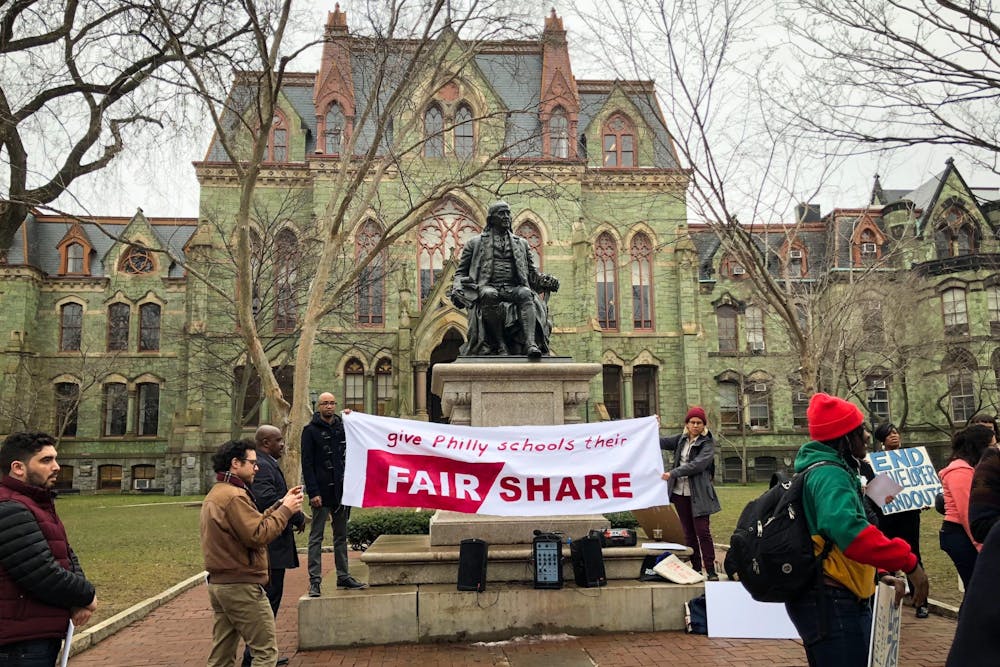The biggest challenge of my childhood occurred when my family moved from the suburbs of Bucks County, Pennsylvania to Northeast Philadelphia. I was nine years old. The biggest hurdle was not getting used to our new home or neighborhood, but rather adjusting to my new school. As a newly registered School District of Philadelphia pupil, the standards that I was accustomed to went out the window. My new reality was an overpacked classroom that lacked air conditioning, a teacher stretched too thin to embrace students’ individuality, an abundance of unhappy classmates, questionable lunches, supply shortages, and long walks home — because there were no yellow school buses.
Within the first month of attending, police officers escorted a classmate of mine out of our classroom for bringing a small pocket knife to school. He used the knife the weekend before during a fishing trip with his dad. We were in fourth grade. In my previous environment, police did not remove children from classrooms. We ran towards police officers each time one visited our school or drove down our street. The officers proudly handed their business cards to us with smiles that matched the cards' vibrant photos. My friends and I collected their business cards; we looked up to the police.
Poverty is a problem in Philadelphia. Here, one in four residents live below the poverty line, but this reality is not apparent every day on Locust Walk. If you venture a mile or so away from Van Pelt Library, the presence of poverty shifts from a sheer whisper to a crystal-clear cry. More than 45% of the Philadelphians who share a ZIP code with the Penn community live below the federal poverty line.
“Life, Liberty and the pursuit of Happiness” are well referenced words from the Declaration of Independence. For today’s Philadelphians who are living in poverty, much of that “independence” is inaccessible. Poverty causes trauma. There is no escaping its impact. Three years ago, Philadelphia Councilmember Allan Domb said that 81% of Philadelphia’s School District’s students live in poverty. This is an alarming rate of poverty. Students living in poverty face challenges that outweigh their ability to excel academically. Funding is essential for helping the vulnerable communities in Philadelphia.
What is it about poverty and deprivation in Philadelphia that we deem insolvable? At Penn, it's hard to keep up with our constant pursuit of innovation. As a nonprofit, Penn is excluded from paying property taxes. However, Penn should be making Payments in Lieu of Taxes, just like every other member of the Ivy League, with the exception of Columbia University.
The property that Penn owns is worth over 2.5 billion dollars, all of which is exempt from being taxed. In its most recent Form 990 from Fiscal Year 2018, Penn listed that it gave $4,526,076 in cash grants to the University City district and the School District of Philadelphia. This number is well below the Student Labor Action Project’s suggested 7 million dollar payment that Penn pay in PILOTs. The fight to have Penn pay PILOTs is not new, but it continues to be an important element of holistically curing Philadelphia’s issue with poverty.
The city of Philadelphia is deprived. The School District of Philadelphia is drowning and the gap between rich and poor keeps deepening. With today’s schools being more segregated than they were 40 years ago, Penn’s failure to pay PILOTs directly and disproportionately affects Black and Brown people. This is a systemic problem that needs to be addressed. We must stop betting against Philadelphians and begin facilitating innovative ways to alleviate systemic inequality.
“Why would your parents move to Philadelphia?” is a question I hear often when I share some of my experiences growing up in Philadelphia in contrast to the years I lived in Bucks County. The answer is simple, my mother needed to be closer to work. The complex part of that question is exposing the underlying truth: why would your parents remove you from privilege? Thinking like this needs to shift. It stabilizes stagnation and eliminates advancement past the real problems Philadelphians face with a failing school system and deep poverty. Philadelphia is full of capable young people. All Philadelphia students should be exposed to opportunities to flourish their futures.
Off the top of my head, I can recite ten of my peers that have become victims of homicide, police killings, criminal justice injustice, poverty and addiction. Is it fair to say their neighborhood environments and educational experiences have not impacted their life outcomes? No, it is not. Ultimately, Philadelphia’s children will never gain adequate access to positive futures until Philadelphia is in a position to support its endangered residents. My ability to “leap” from my neighborhood high school in Northeast Philly to the Ivy League should not be highlighted as a display of triumph. It should be a wake-up call. We accept our failing school system as a normality. This must change.
It’s time for Penn to fully embrace itself as a well-established component of Philadelphia’s community and to contribute more to our failing neighborhoods through paying PILOTs. As a colonial college, Penn has been absorbing Philadelphia since before the birth of America. The time for Penn to appropriately support and partner with its longtime home is now. For me, theoretically beating a system of privilege does not feel good. It reminds me of the need for change and accessibility. It reminds me that it is my responsibility to use my privilege as a voice for others.

JESSICA GOODING is a rising College senior from Philadelphia, Pennsylvania studying History and English. Her email address is jgooding@sas.upenn.edu.
Have opinions of your own you would like to share? Submit a guest column.









